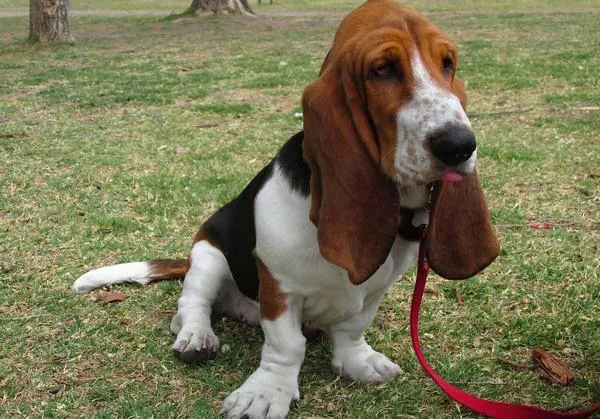Introduction
Basset Hound puppies are adorable and playful, but their nipping and biting behavior can be challenging for owners to manage. While this behavior is normal during their early development, it’s essential to address it promptly to prevent it from becoming a long-term issue. In this article, we will explore effective strategies and tips to help stop a Basset Hound puppy from biting, fostering a well-behaved and happy companion.
1. Understand the Nature of Basset Hounds
Before addressing biting behavior, it is crucial to understand the breed’s characteristics. Basset Hounds are scent hounds originally bred for hunting. They have a keen sense of smell, and their instincts might drive them to investigate and mouth objects. Recognizing these traits will aid in developing the right training approach.
2. Early Socialization is Key
Socializing your Basset Hound puppy from an early age is essential for their behavioral development. By exposing them to various people, animals, and environments, you help them become more comfortable and less anxious, which can reduce the tendency to bite out of fear or stress.
3. Gentle Handling and Positive Reinforcement
When your Basset Hound puppy bites, it’s essential to respond calmly and avoid harsh punishments. Harsh methods can instill fear and anxiety, leading to further behavioral issues. Instead, practice positive reinforcement by rewarding good behavior with treats, praise, or affection. This will encourage them to repeat positive actions and refrain from biting.
4. Use Bite Inhibition Training
Bite inhibition is a crucial skill for all dogs to learn, especially for breeds like Basset Hounds, as their jaw strength can lead to unintentional injuries. Whenever the puppy bites, react with a gentle but firm “ouch” or yelp. This mimics how a littermate would react to excessive biting. This helps the puppy understand that biting hurts and is not appropriate. Over time, they will learn to control the force of their bite.
5. Provide Ample Exercise
A tired Basset Hound puppy is less likely to engage in excessive biting. Regular exercise is essential for burning off excess energy and promoting better behavior. Engage your puppy in play sessions, walks, and interactive toys to keep them physically and mentally stimulated.
6. Offer Suitable Chew Toys
Basset Hound puppies have a natural urge to chew during their teething phase, which can lead to biting behavior. Provide them with a variety of suitable chew toys to redirect their biting tendencies to more appropriate items. Ensure the toys are durable and safe for them to chew on.
7. Set Consistent Boundaries
Establishing consistent boundaries is crucial for training any puppy. Decide on what behavior is acceptable and what is not. Be consistent in correcting biting behavior every time it occurs, using the same verbal cues and gestures. This will help your puppy understand what is expected of them.
8. Timeouts for Biting
If your Basset Hound puppy continues to bite despite your efforts, a timeout can be an effective technique. When the puppy bites, calmly remove yourself from their presence and ignore them for a short period. This teaches them that biting leads to a loss of attention and playtime, reinforcing the idea that biting is unacceptable.
9. Seek Professional Training
If you find that your Basset Hound puppy’s biting behavior is persistent and challenging to manage, consider seeking professional training assistance. A professional dog trainer or behaviorist can offer personalized guidance and develop a tailored training plan to address your puppy’s specific needs.
10. Be Patient and Consistent
Training a Basset Hound puppy to stop biting takes time and patience. Every dog is different, and while some may respond quickly to training, others may take longer. Stay committed to the process and be consistent in your training efforts. Celebrate small victories and remain patient even during setbacks.
Conclusion
In conclusion, stopping a Basset Hound puppy from biting requires understanding their breed characteristics, early socialization, gentle handling, positive reinforcement, and bite inhibition training. Providing ample exercise and appropriate chew toys, along with setting consistent boundaries, will also contribute to their behavioral development. Remember to be patient and seek professional help if needed. With dedication and positive training methods, you can guide your Basset Hound puppy towards becoming a well-behaved and affectionate companion for years to come.


